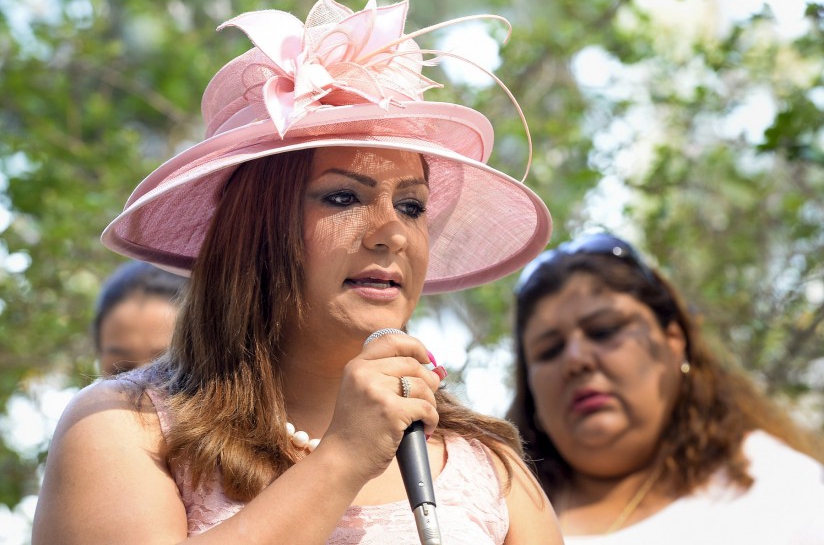Over the last few months, the Ramona Gardens housing development in the Boyle Heights neighborhood has been home to a community-wide movement led by local residents-turned-health educators, known in Spanish as promotoras.
As part of an evidence-based health education program on heart disease, diabetes and cancer, aptly named “Ahora es tiempo de cambiar” (Now is the time to change), lessons on a healthy diet and exercise provided more than just tips on lifestyle behaviors — they were a call to action.
As part of a collaboration among Clínica Monseñor Oscar Romero, Ramona Gardens residents and USC Health Sciences Campus Community Partnerships in Civic Engagement, “Ahora Es” is a program of the Ramona Gardens Women’s Health Initiative, funded by the USC Good Neighbors Campaign.
On March 28, more than 70 promotoras and their families were welcomed by Zul Surani, executive director of HSC Community Partnerships, and his team in a ceremony honoring their achievements as certified community health workers. The event took place outside of the USC Norris’ Comprehensive Cancer Center’s Community Outreach Center and recognized the women as trusted health educators in the fight against top diseases affecting their families and neighbors.“Leading-edge biomedical, clinical and public health research is being conducted on USC’s Health Sciences Campus to make progress against diseases that affect Ramona Gardens residents such as diabetes, heart disease and cancer,” Surani said. “What good is this progress if it cannot benefit our neighbors just across the street from us?”
Promotora Liliana Martinez, who has lived with diabetes for years, said “Ahora Es” came at a time when she was faced with the possibility of dialysis due to poor disease management. Like all 18 promotoras, who have the capacity to reach 550 residents through their health outreach and workshops, Martinez stressed the importance of education and new scientific discoveries in fighting diseases such as diabetes.
“Our time is spent taking care of others and in the process we neglect our own health and well-being,” she said. “I am grateful to everyone who has contributed to the program and to the promotoras who are a pleasant group that knows one another. We have shared our learning experiences together and with our families.”
As a result of “Ahora Es,” several participants formed walking groups and began to make healthier food choices. Some even reported weight loss.
Victoria Ortega, one of the original founders of the promotora group, said that her wish for the Ramona Gardens community is “for everyone to unite on a positive note because the Latino community definitely has the ability to do so.”
— Melisa Acoba


